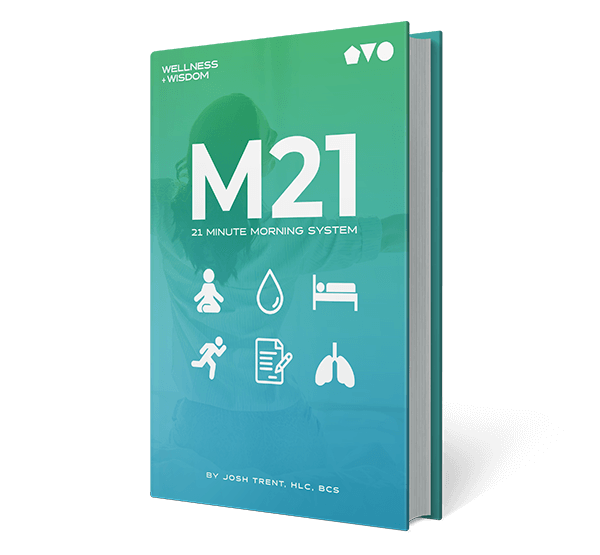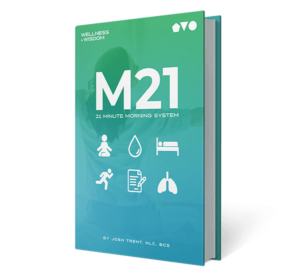 Without prior knowledge, many people may confuse cognitive changes from traumatic brain injury (TBI) with experiencing mental health problems. Sometimes, this is an unfortunate truth, but having cognitive symptoms after a TBI does not necessarily mean having mental health issues. The two are often related — the cognitive effects of a TBI can be precursors to developing or exacerbating mental health concerns. However, you cannot cast the relationship between the two in stone.
Without prior knowledge, many people may confuse cognitive changes from traumatic brain injury (TBI) with experiencing mental health problems. Sometimes, this is an unfortunate truth, but having cognitive symptoms after a TBI does not necessarily mean having mental health issues. The two are often related — the cognitive effects of a TBI can be precursors to developing or exacerbating mental health concerns. However, you cannot cast the relationship between the two in stone.
Table of Contents
What Causes a TBI?
A TBI can occur from being hit on the head or otherwise subjecting your skull to a severe impact — for example, if you’re involved in a car accident or fall off a horse, the effect of the blow could result in a TBI. The condition could occur from something as innocent as impacting your head on a door frame to undergoing a vicious assault with a sharp implement like a knife or a penetration from a bullet or a blunt object like a fist or bat.
Over three-quarters of TBIs are deemed mild, but even these can cause long-term and serious issues with cognitive symptoms like comprehension, memory and verbal difficulties. While over 85% of mild TBI patients make complete recoveries, in others, the associated anxiety and stress you experience can result in developing mental health disorders or worsening preexisting ones.
The other quarter of TBIs falls into the moderate or severe category, with these people often developing significant and permanent health issues. In the United States, in 2021, 69,473 people died from TBI-related incidents.
What Causes a Mental Health Disorder?
Mental health disorders are sadly common in today’s society but often relate to treatable personal or historical circumstances that can sometimes fully heal. There is no one cause responsible for mental illness, with some more common contributors being:
- Heredity.
- Alcohol and recreational drug abuse.
- Biological chemical brain imbalances.
- An abusive childhood or relationship.
- A serious, life-threatening medical condition.
- Prenatal exposure to harmful substances.
- Loneliness or isolation.
- A TBI.
These contributing factors often result in mental disorders, with phobias, obsessive-compulsive disorder (OCD), bipolar disorder, depression, eating disorder, post-traumatic stress disorder (PTSD), personality disorders and psychotic disorders, all clinically identifiable. With your brain’s complexity, any listed contributors can affect you in unpredictable ways, with some more receptive to treatment than others.
How Does Traumatic Brain Injury Affect Mental Health?
A mild TBI can result in a brief loss of consciousness, and you may struggle with headaches, confusion, blurred vision, fatigue, lightheadedness and dizziness following the injury. You might also struggle with sleeping and find your mood and behavior changes or your cognitive functioning may suffer. These symptoms are usually temporary — you will return to your old self in time.
With moderate or severe TBIs, these symptoms still exist, but others, including the following, could surface:
- Nausea
- Vomiting
- Convulsions
- Slurred speech
- Numbness
- Loss of coordination
- Increased cognitive symptoms of confusion
- Loss of attention span
- Thought processing problems
- Losses in memory and concentration
Whether you have a temporary mild TBI or a more long-term moderate or severe injury, you could potentially struggle with mental health issues.
How Cognitive Changes Can Affect Mental Health
While the impact leading to the TBI can cause all the above symptoms — some directly affecting your brain’s neurological function — other parts of your brain remain in perfect working condition. When these perfectly functioning parts of your brain recognize your inability to act or react as before cognitively, the risk of mental health changes and subsequent mental disorders may develop.
Consider the restlessness, frustration, and agitation you would feel if confronted by an inability to think, process, and act as you’re used to. When you add the physical changes and side effects you’re experiencing, feeling trapped inside a body and mind reacting in ways you’re unused to will take its toll on your psychological well-being.
You may feel confused and or guilty for being emotional. Moderate and severe TBIs are known to increase the risk of PTSD and depression in those affected long-term or permanently, often as a direct result of cognitive changes brought on by the TBI. While treating these psychological feelings is necessary, undergoing cognitive behavioral therapy (CBT) and neurorehabilitation first to heal the brain injury will impact your resulting mental treatment more favorably.
PTSD
If you feel constant fear, anger, shame or guilt following a TBI, combined with sleeping problems, self-destructiveness and angry outbursts, you are a PTSD candidate. Other symptoms include memory loss, detachment and devoid of positive emotion. While your memory loss could be a direct cognitive result of the TBI, it may also be due to the onset of PTSD, a mental disorder often resulting from a traumatic event, which the TBI undoubtedly was.
If you have developed signs of a mental health issue after your TBI, avoid allowing the unfair public stigma to affect you further, as this will only encourage the onset of depression, making your road to recovery more taxing.
Depression
 Over 8% of Americans battle major depression, making it the second most prominent mental health illness in the country behind anxiety disorders, which can also affect people with TBIs. Depression comes in many forms and levels of seriousness. If you have experienced a TBI and are fighting cognitive dysfunction, you must understand the disorder can affect anybody — and you are not alone.
Over 8% of Americans battle major depression, making it the second most prominent mental health illness in the country behind anxiety disorders, which can also affect people with TBIs. Depression comes in many forms and levels of seriousness. If you have experienced a TBI and are fighting cognitive dysfunction, you must understand the disorder can affect anybody — and you are not alone.
Considering your ordeal and circumstances, you warrant your feelings of sadness, hopelessness and concern. With depression, even on a minor scale, you’ll experience many of the same symptoms of PTSD, with some likely clinically related to your TBI. If you feel suicidal, eat too much or not enough, oversleep or go through insomnia, are always tired and don’t enjoy things that used to give you joy, you may well be depressed due to your limitations.
Take some solace from the general causes of depression, which include stressful events and brain chemistry imbalances brought about by neurotransmitter imbalances. Ask the neurosurgeon treating you whether your TBI has caused these, and recognize that, even if not, the trauma and cognitive changes you’re experiencing are enough to cause depression.
Living With a TBI
Depending on the degree of your brain injury, you may have to make some significant adjustments to how you live. While treating your physical TBI symptoms, pay attention to your mental health and how you can best improve it. Liaise with your health care professionals to plot a route to recovery. If your cognitive changes are temporary, identify how long you should undergo CBT before you can effectively begin treatment for your psychological well-being.
With the advances in TBI treatment, recovery rates are escalating, and if you combine your physical, neurological and mental health treatments well, you will likely see improvements in essential areas sooner rather than later.









